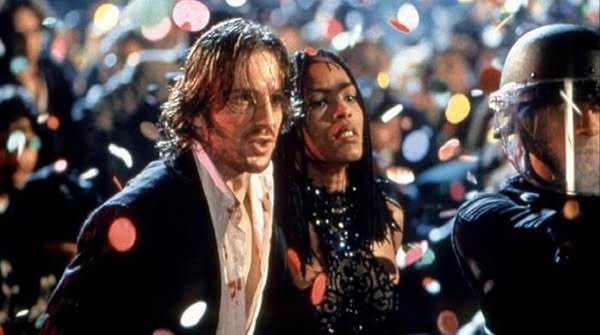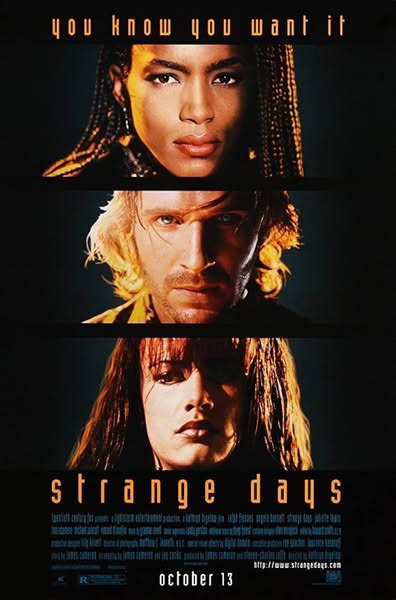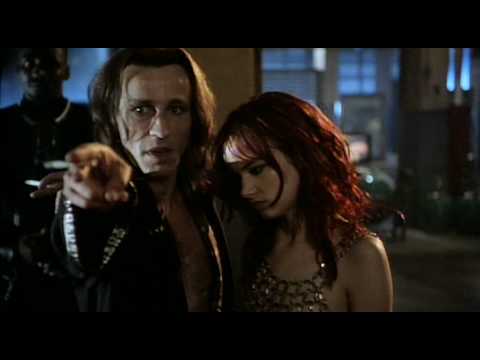Strange Days (1995)

Strange Days (1995), directed by Kathryn Bigelow, is a provocative and visually stunning science fiction thriller that delves into the themes of technology, perception, and the human experience. Set in the last days of 1999, the film presents a dystopian Los Angeles on the brink of chaos, capturing the anxieties and hopes of a society grappling with the impending new millennium.
The story follows Lenny Nero (Ralph Fiennes), a former cop turned black market dealer of “SQUID” technology, which allows users to experience and relive others’ memories and sensations directly. As Lenny navigates the gritty underbelly of the city, he becomes embroiled in a conspiracy involving the murder of a young woman and the political tensions surrounding it. His quest to uncover the truth is complicated by his obsession with his former girlfriend, Faith (Juliette Lewis), who is involved in the darker aspects of Lenny’s world.

Bigelow’s direction is both stylish and intense, employing a frenetic pace that mirrors the chaotic environment of the film. The use of first-person perspective in the SQUID technology sequences immerses viewers in the experiences of the characters, blurring the lines between reality and virtual experience. This innovative approach raises questions about the nature of perception and the impact of technology on human connections.

The film’s performances are noteworthy, particularly Fiennes, who conveys Lenny’s vulnerability and desperation as he grapples with his own demons. Angela Bassett delivers a powerful performance as Mace, Lenny’s tough and resourceful friend, who plays a crucial role in his quest for truth. Their dynamic adds depth to the narrative, highlighting themes of loyalty and the struggle for agency in a corrupt world.
Visually, Strange Days is a feast for the senses, with its vibrant cinematography and a pulsating soundtrack that captures the energy of the time. The film deftly incorporates elements of cyberpunk aesthetics, creating a world that feels both familiar and unsettling. The haunting score by Graeme Revell further enhances the film’s emotional resonance.

In conclusion, Strange Days is a thought-provoking exploration of technology, memory, and the complexities of human emotion. Its prescient themes of surveillance, virtual reality, and societal decay remain relevant today, making it a significant entry in the science fiction genre. Bigelow’s masterful direction, combined with strong performances and innovative storytelling, creates a film that challenges viewers to reflect on the implications of technology on their lives. As a bold and ambitious work, Strange Days continues to resonate with audiences, inviting them to question the very nature of reality and the human condition.











